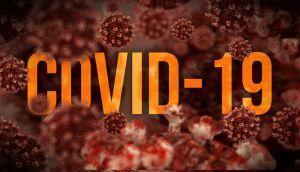How Has Coronavirus Affected Criminal and Civil Cases in Connecticut?
 For the past couple of months, the world has been battling COVID-19, a virus that led the World Health Organization (WHO) to declare a pandemic for the first time in history. Worldwide cases have reached more than 600,000, while the number of cases in the United States has topped 160,000. COVID-19, also known as Coronavirus, is a disease that causes respiratory illness, characterized by flu-like symptoms along with a cough, chest tightness, and/or shortness of breath. Most people recover from the disease without complications, but those with underlying health conditions or those who are over the age of 60 are more likely to develop serious complications.
For the past couple of months, the world has been battling COVID-19, a virus that led the World Health Organization (WHO) to declare a pandemic for the first time in history. Worldwide cases have reached more than 600,000, while the number of cases in the United States has topped 160,000. COVID-19, also known as Coronavirus, is a disease that causes respiratory illness, characterized by flu-like symptoms along with a cough, chest tightness, and/or shortness of breath. Most people recover from the disease without complications, but those with underlying health conditions or those who are over the age of 60 are more likely to develop serious complications.
The spread of COVID-19 across the U.S. has prompted many state and local officials to halt non-essential business operations. Some locations have issued stay-at-home orders, prohibiting residents from leaving their homes except for essential activities. This has led to a change in how even the most basic of operations are run, including how the court systems will operate during this trying time. If you have an outstanding criminal or civil case, you should speak to an attorney to determine how you should proceed.
Changes in Court Cases
While some of Connecticut’s courts are still open, they are operating at a limited capacity and only conducting essential business. As per Connecticut Gov. Ned Lamont’s Executive Order No. 7G, the courts will only schedule and hear matters that are considered to be “Priority 1 Business Functions.” These include:
-
Criminal arraignments of defendants held in lieu of bond;
-
All arraignments involving domestic violence cases;
-
Juvenile detention hearings;
-
Family and civil orders of relief from abuse;
-
Civil protection orders;
-
Ex parte motions;
-
Orders of temporary custody for cases involving juvenile matters;
-
Orders to appear for cases involving juvenile matters;
-
Emergency ex parte order of temporary custody;
-
Juvenile detention operations for detainees held for juvenile court;
-
Termination of parental rights;
-
Domestic violence victim notification; and
-
Civil and family capias mittimus execution and bond review.
Further Precautions for the Court Systems
In an effort to further reduce the daily business at statewide court locations, Connecticut judicial branch officials have implemented the following measures:
-
The criminal courts in Rockville, Torrington, Danbury, Danielson, Enfield, Manchester, and Norwich have been closed until further notice. Courthouses in other districts are open in a limited capacity to address Priority 1 functions.
-
Civil and criminal jury selections and jury trials at the federal courthouses in New Haven, Hartford and Bridgeport will be postponed until at least April 13.
-
Cases involving juvenile matters will only be heard at the Hartford and Bridgeport juvenile courthouses.
-
Only minimal staff will be on hand to conduct operations. All other staff will remain at home, working from home when possible.
In addition, jury trials for criminal and civil matters have been suspended until further notice. The exceptions to this rule are jury trials that are already in progress and criminal jury trials necessitated by the filing and granting of a speedy trial motion.
A Connecticut Criminal Defense Attorney Can Answer Your Questions
Like many other states, the state of Connecticut is attempting to enact necessary safety measures for everyone involved in the court processes, while still ensuring that these processes can be performed in a timely and constitutional manner. If you are concerned as to how the changes in processes will affect your case, you should speak with a Hartford, CT criminal defense lawyer. At the Woolf & Ross Law Firm, LLC, we will do our best to clear up any confusion you may have. Call our office today at 860-290-8690 to set up a virtual consultation through Skype, FaceTime, or WhatsApp.
Sources:
https://www.who.int/health-topics/coronavirus#tab=tab_1
https://www.jud.ct.gov/COVID19.htm
https://portal.ct.gov/-/media/Office-of-the-Governor/Executive-Orders/Lamont-Executive-Orders/Executive-Order-No-7K.pdf?la=en
https://www.law.com/ctlawtribune/2020/03/27/as-concerns-over-covid-19-grow-connecticut-closes-more-courts/






